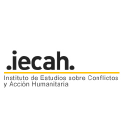WORKING WITH DG ECHO AS A UN AGENCY | 2014 - 2020
CASH AND VOUCHERS
TRANSFER MODALITIES | BENEFICIARIES
Article 11 of the General Conditions refers to beneficiaries as “persons or category of persons". While in most cases the beneficiaries of financial support will be individuals or households, if the decision to provide financial support to a community is well supported by a needs assessment and in line with the results, ECHO may accept it. In any case, in the Single Form, the partner must provide all the information foreseen in Article 11 of the General Conditions.
It has to be considered as voucher.
A Voucher has per its intrinsic nature a restriction on what can be purchased / exchanged for. Therefore if a voucher has a whatsoever restriction is and remain a voucher. It has to be considered cash only if it allows to retrieve money from an ATM or can be used to purchase whatever and whenever (unlikely).
ATTENTION! As discussed, some e-cards have wallets: some restricted (i.e. for food only) and some wallets whose amount can be cashed in an ATM. In this case, the partner should differentiate the two types of modalities.
The risk levels associated with financial transfers are often associated with perceived risk rather than added risk compared to other aid distribution methods. Also depending on the precise distribution method used, different levels of safeguards exist. Distributing money by means of a bank transfer or a post office account may, in certain cases be less risky than a 'cash-in-envelope' scenario. The delivery option selected will necessarily be context-specific and partners should be able to demonstrate that they have duly considered the options available and to objectively justify the choice. In comparing available transfer modalities cost efficiency and effectiveness will be important, with the ability to achieve intended programme outcomes paramount. Depending on how the Action's objectives are framed, much of the risk may be more operational than financial. Where reputable financial institutions and established infrastructure exists in a country both donors and humanitarian organisations should strive to rely upon and support the use of existing structures.
Here again, it is necessary to refine the approach taken depending on which account the unspent balances are held in.
a) if, for whatever reason, some of the money to be distributed to the final beneficiaries is left pending in the Organisation's central holding account at the end of the Action's eligibility period - that money represents an unspent balance which cannot be charged to any donor. The calculation of the unspent balance per donor will be made on a pro rata basis.
Where needed, this balance may be recovered by ECHO following the agreed procedure in the special clause for the recovery of a surplus balance (currently in place with UNICEF, UNHCR, UNRWA, FAO, UNOPS, PAHO, WHO, UNDO & UN-HABITAT). Where this special clause is not already automatically used in the Agreement with a Partner it is suggested that the following text be included manually in Article 6.2 of all Agreements concerning the distribution of cash:
In the event of a final surplus balance of total financing over expenditures at the financial closure of a project:
- The Organisation shall specify in the final report the amount of the surplus balance in the holding currency used by the Organisation together with the estimated amount in Euro and where the exchange rate of the Organisation can be consulted.
- This surplus in holding currency used by the Organisation in the Organisation's accounts will be converted into Euro using the rate of exchange of the Organisation in force on the day when the Commission's internal recovery order is established, which amount is later reflected in the debit note sent to the Organisation.
- The resulting Euro equivalent will then be refunded to the Commission.
This provision will not apply to the exchange rates used for reporting.
Further exchange rate risks arising due to the need to use currencies other than the holding currency or the Euro will be borne by the Organisation.
If considered necessary it may be possible to consider re-wording this clause to specifically address the recovery of unspent amounts in cash-based Actions. With regard to exchange rate considerations a simpler alternative may be:
"In the event of a final surplus balance of total financing over expenditures at the financial closure of a project, the Organisation shall, in line with the financial rules of the Organisation, specify in the final report the amount of the surplus balance, which will be refunded to the Commission following the issuance of a debit note and in accordance with the agreed procedures".
Once again, if this simpler formulation is selected, exchange rate risks arising due to the need to use currencies other than the holding currency or the Euro will be borne by the Organisation.
b) if, for whatever reason, some of the money distributed to the final beneficiaries is left pending in the beneficiary's own account at the end of the Action's eligibility period - that money does not automatically represent an unspent balance since it has been 'incurred' and if is still under the control of the beneficiary. Funds that are however no longer under the control of the beneficiary due to the timeframe having expired or deactivation of an account are considered as unspent funds and subject to return to the donor. The mere fact that a cost has been "incurred", naturally, will not make it an eligible cost unless the other criteria are also respected. However, in multi-donor Actions questions on cost eligibility of this nature will not always have a financial impact as ineligible costs may be covered by the Notional Approach.
In certain contexts the Humanitarian Organisations may be able to ascertain that, due to inactivity or other reasons the account in the name of the final beneficiary has been deactivated. ECHO does not require its Partners to do this but it seems that it may be emerging as a good practice amongst humanitarian actors. If in such context the Humanitarian Organisation is able to reclaim the unspent balance on the beneficiary's account that balance, it is proposed to require that this balance be returned to the central holding account to be treated together with the global unspent balance (point a) above).
Under the general applicable rules on cost eligibility, the Commission can only pay for a cost when it has, amongst other criteria, been correctly "incurred".
In humanitarian aid actions, provisions exist to determine the moment that a cost has been incurred with regard to goods, equipment, services or works used in connection with the Action. No guidance or interpretation, however, exists as yet to determine when, in the context of Actions involving cash distribution to final beneficiaries, the cash transfer or financial transaction is considered complete and the cost is therefore deemed 'incurred'.
It is widely established that the fact that a legal commitment has been made (e.g. signature of a legally binding agreement or issuing a purchase order) is not sufficient for the costs to be deemed 'incurred'. Likewise, the fact that an accounting provision has been made (e.g. money has been placed in an account with a view to being distributed) cannot be sufficient to deem those costs as 'incurred'.
In the case of humanitarian supplies ECHO's provisions require that the costs should relate to supplies distributed/made available to the beneficiaries during the eligibility period of the Action. It would seem appropriate to extend this approach also to cash-based distributions with the following context-specific qualification:
a) where the money to be distributed to the final beneficiaries is held in a bank or other equivalent holding mechanism used by mobile phone operators, hawala agents, etc in the name of one or more humanitarian organisations - the cost shall be deemed incurred when the money has been distributed to the final beneficiary or his/her representative. Money is considered 'distributed' the moment that the beneficiary has access to it. For example, money does not actually need to be withdrawn for costs to be considered as incurred.
It is however good practice to provide a specific timeframe to beneficiaries during which the money may be accessed;
b) where the money to be distributed to the final beneficiaries is deposited directly into a bank or equivalent account in the name of the final beneficiaries, or is handed over directly to the beneficiary - the cost shall be deemed incurred at that point.
Partner should be prepared to demonstrate that a cost has been actually incurred, for instance, during ECHO audits or verifications. Auditors or Verifiers may ask to visit specific Action locations (distribution points etc.) to verify that the money has been deposited during the eligibility period. During an HQ audit/verification, Commission representatives may check all the supporting documents related to the Action and the relevant dates (including bank accounts and statements).





